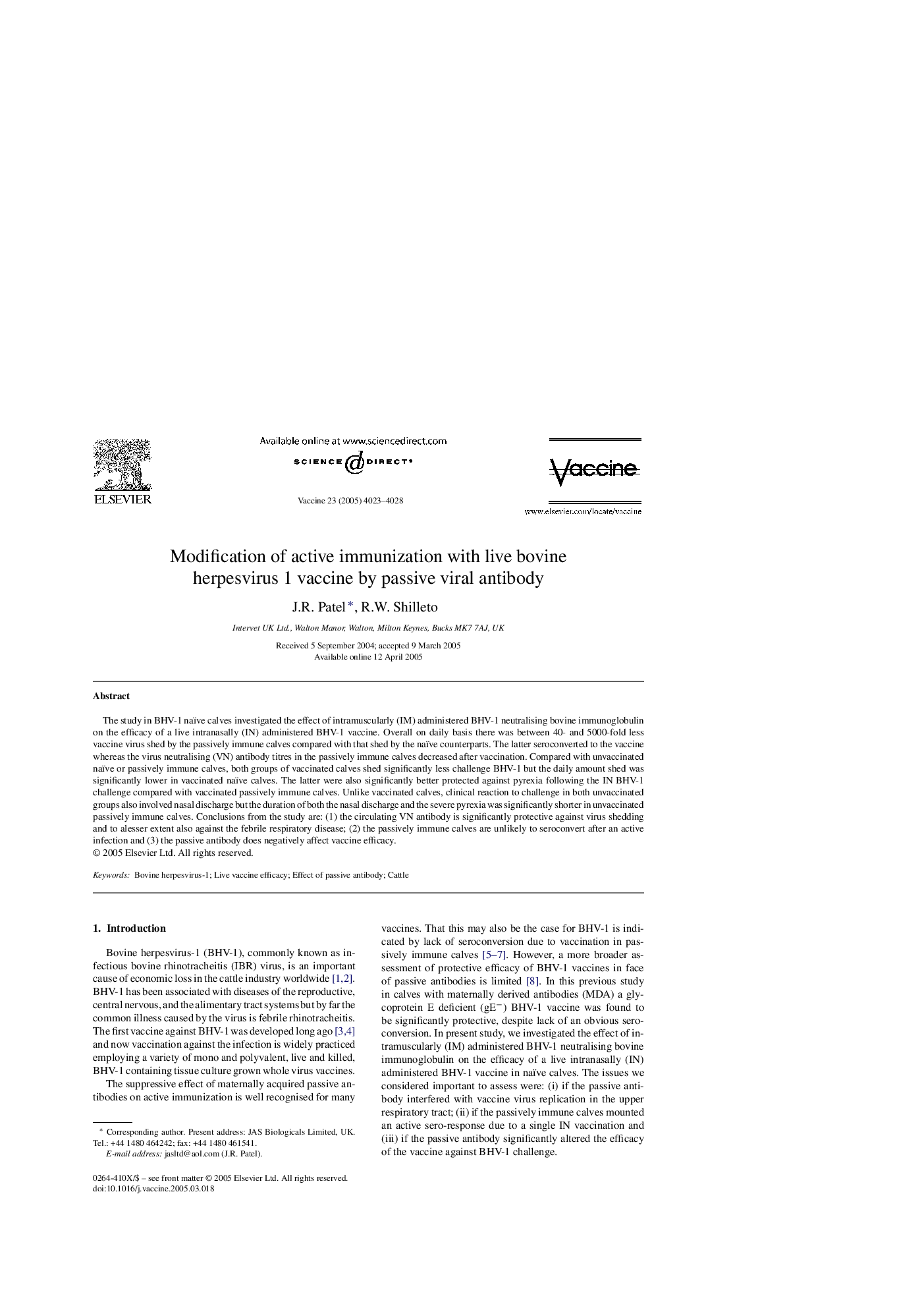| Article ID | Journal | Published Year | Pages | File Type |
|---|---|---|---|---|
| 2410079 | Vaccine | 2005 | 6 Pages |
The study in BHV-1 naïve calves investigated the effect of intramuscularly (IM) administered BHV-1 neutralising bovine immunoglobulin on the efficacy of a live intranasally (IN) administered BHV-1 vaccine. Overall on daily basis there was between 40- and 5000-fold less vaccine virus shed by the passively immune calves compared with that shed by the naïve counterparts. The latter seroconverted to the vaccine whereas the virus neutralising (VN) antibody titres in the passively immune calves decreased after vaccination. Compared with unvaccinated naïve or passively immune calves, both groups of vaccinated calves shed significantly less challenge BHV-1 but the daily amount shed was significantly lower in vaccinated naïve calves. The latter were also significantly better protected against pyrexia following the IN BHV-1 challenge compared with vaccinated passively immune calves. Unlike vaccinated calves, clinical reaction to challenge in both unvaccinated groups also involved nasal discharge but the duration of both the nasal discharge and the severe pyrexia was significantly shorter in unvaccinated passively immune calves. Conclusions from the study are: (1) the circulating VN antibody is significantly protective against virus shedding and to alesser extent also against the febrile respiratory disease; (2) the passively immune calves are unlikely to seroconvert after an active infection and (3) the passive antibody does negatively affect vaccine efficacy.
